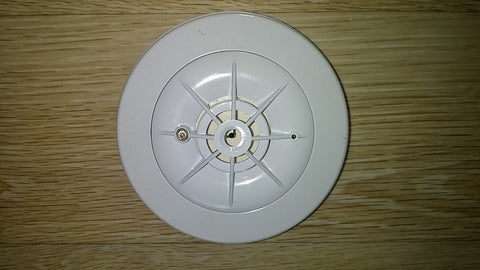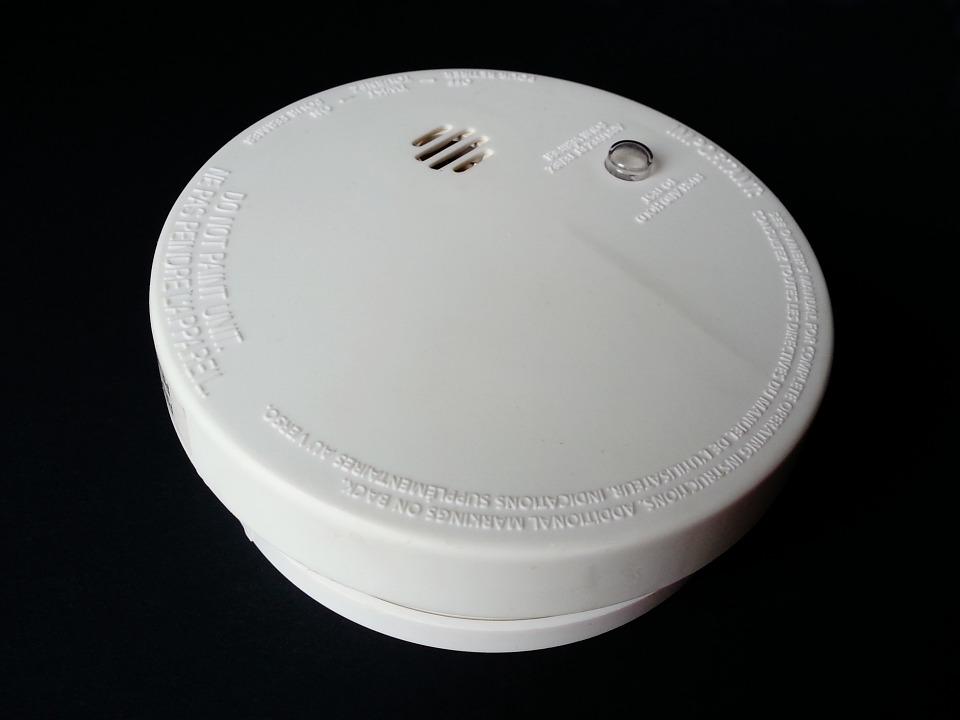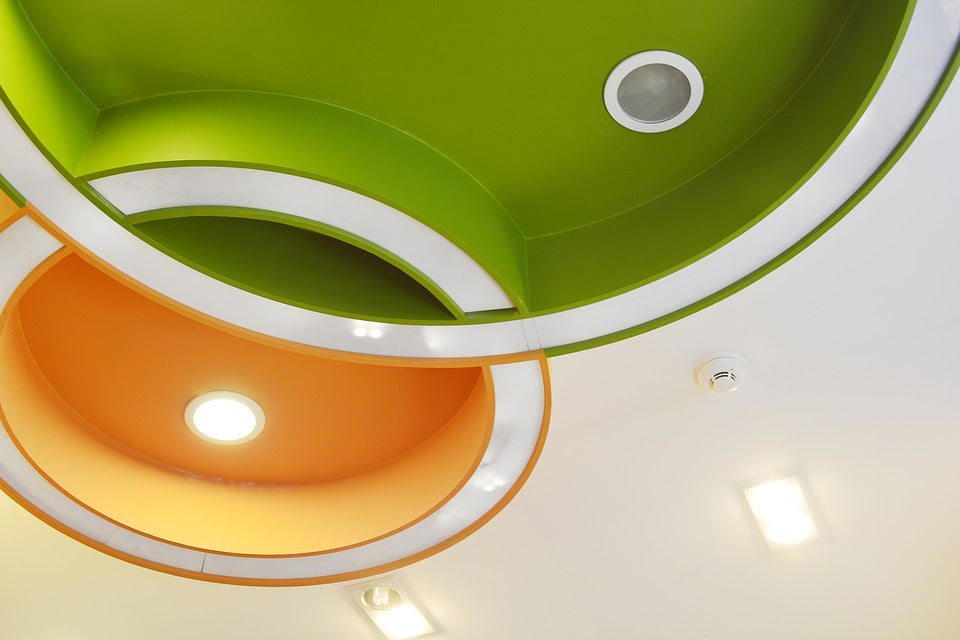
Smoke detectors are electric-powered or battery-powered systems installed in homes. They alert homeowners when smoke (a major pointer of fire) is sensed through an alarm, thereby improving the odds of escaping and controlling a fire outbreak.
Smoke detectors provide extra security and fire prevention to homeowners as one may not always be indoor or close to the place of incident. As a result, they’re essential and life-saving.
Smoke alarms or detectors make audible noise and visual signals in the event of smoke detection. This signal could be heard or seen from the smoke detector or an attached component that amplifies the sound.
Notably, smoke detectors have become one of the most substantial installations done in homes to save lives and properties from a probable fire outbreak. For this particular reason, they’ve become must-haves in homes that wish to enjoy a peaceful, fire-free, and conducive environment.
Safety in homes is now an essential aspect of the present day.
Moreover, many homes have become technologically inclined, which brought about the need for a system to alert homeowners of any emergency, especially smoke, fire, and other related events.
Having a reliable smoke detector as a homeowner is crucial. In this article, we shall discuss the key features of reference when choosing a smoke detector and the various types of smoke detectors you should know about or even choose from when shopping for one.
Features to Consider when Buying a Smoke Detector
Since the invention of smoke detectors, manufacturers have designed various smoke alarms to serve different purposes and functions; they’re made for different environments and places.
It's important that you find the right type for your home when you decide to install one.
Also, ensure that you understand the functionality of the home detector you wish to buy before purchasing it.
The following are factors to consider in a smoke detector.
Location Alert
In emergencies, having a system that gives the exact location of the occurring alarm will greatly control and give sufficient time for de-escalating the emergency.
Warranty Period
When buying a smoke detector, the product should provide a longtime warranty. Most smoke detectors last between 10 and 14 years and provide a long-lasting service, requiring just maintenance.
Installation Difficulty
Smoke detectors are powered by battery and electricity. The battery-powered ones are easy to install and maintain.
Insect Guard
A good smoke detector should have protection from insects. Smoke alarms now have a glass or plastic lid that stops insects from setting the alarm off.
Battery Lifespan

Battery-powered smoke alarms should have long-lasting batteries to avoid having a dead alarm during emergencies.
Deactivation Button
The device must have a deactivation button to be silenced once the problem or fire is out.
Interconnectivity
A good smoke detector should allow for multiple ware connections, such that homes without hardwiring can connect to wireless networks or devices. With the availability of current technology, an alarm system needs to be interconnected.
Voice Notification
In buildings with multiple smoke detectors, it would be an added advantage if the detectors come with voice notifications options to give specific information during emergencies.
Path Indicator
In cases of huge smoky incidents, the alarm system should have a light that would brighten the path for you and your family members to navigate your way out of the building easily. This feature will enhance your survival rate significantly and reduce the risk of losing your property.
Types of Smoke Detectors
There are basically two main types of smoke detectors: ionization smoke detectors and photoelectric smoke detectors.
However, there is one more type designed to improve the effectiveness and functionality of smoke detectors in buildings.
Let’s take a closer look at each.
1. Ionization Smoke Detectors

These types are known for their fast response in the case of tiny particles detection and flaming fire. They efficiently sense small smoke fractions, giving them a response rate of about 15 to 25 seconds.
The ionization smoke detector has electrically charged plates containing radioactive materials that help decrease the amount of current flow within the plates.
This situation occurs when the flow of current in the plates ionizes the air. When fumes enter the plate circle, it ionizes the current, triggering smoke or fire emergencies.
This type of smoke detector is, however, prone to false alarms when placed in a location where constant smoke exists. Thus, it’s best not placed them in the kitchen and bathroom.
2. Photoelectric Smoke Detectors

They are the type of smoke detector system that uses the decrease or increase in light to sense the threat of smoke within an area.
The high sensitivity to light associated with this kind of system makes it efficient in detecting fire that flares from seething sources. For instance, fire may start from a fallen candle on a couch.
The photoelectric smoke detector works by sensing the reduction of light beams in a particular area by analyzing it. If it detects the light as a threat, the alarms immediately set off to alert homeowners.
Homeowners mostly use this type of smoke detector to detect long-lasting fumes on the surface before erupting as a full-blow fire.
3. Dual Smoke Detectors

The dual smoke detector is the third type of smoke detector introduced to protect homes better against smoke or fire outbreaks. It is simply a system that allows the installation of both ionization and photoelectric smoke detectors.
In the dual system, you’ll have to install an advanced component in the same location. It’ll then alert homeowners on emergencies relating to the different signals that are threats to fire eruption.
The system is available on the market with the same compact device.
You can power dual smoke detectors using electricity or a battery. In addition, you can use them in the vicinity where a variety of materials are stored. The reason for this is that dual systems have electrically charged plates that can detect ionized air and come with the necessary equipment to detect smoldering sources of fire.
Comparison between Ionization Smoke Detectors and Photoelectric Smoke Detectors
In considering the type of system to use for smoke alarms in your home, you must understand the major comparison between both systems.
- The ionization smoke system is more responsive to smoke caused by a flaming fire; that is, it's more active in areas where you keep flammable materials within the house. In contrast, the photoelectric smoke alarm responds fast to smoke caused by smoldering; this is because the ton of fumes gather within an enclosed place before flames appear.
- The photoelectric smoke detector detects the smoke by analyzing the level of the light beams. When the flash LCD is deflected and hits the detector plate, it triggers the alarm due to the low light in the detector's chamber. While the ionization smoke detector triggers the alarm when ionized air creates an electric charge within the two plates of the monitor.
Cost of Installing a Smoke Detector

The cost of installing each of the various types of smoke detectors varies.
Installation of an ionization smoke detector will cost between $170 and $190 while the photoelectric smoke detector will cost between $180 and $200.
The dual smoke detector installation could cost you between $187 and $230.
These costs may vary, depending on the manpower or labor required for the installation process.
In terms of maintenance, the battery-powered smoke detectors are easier to maintain. They don’t require a connection to the household electric grid like their electric-powered counterpart.
Which is the Best Smoke Detector to Install?
As discussed earlier, each type of smoke detector has its functionalities. For tight security against fire outbreaks in your home, install a mix of the photoelectric smoke detector and ionization smoke alarm, known as the dual smoke detector.
As a caveat, don’t install the ionization smoke system in the kitchen or bathroom because these places are in constant smoke or steam. The photoelectric smoke alarm is more suitable for these places.
When looking for the right smoke detector, consider the area and nature of the household materials kept where you intend to install the detector.
In Summary
Smoke detectors are systems that analyze the light beams and flames within a household through electrically charged plates and ionized current flow. They then automatically trigger alarms to alert the homeowner.
Having a secure and comfortable environment should be every homeowner's priority. And one of the ways to achieve that is with a good smoke detector.






Leave a comment
This site is protected by hCaptcha and the hCaptcha Privacy Policy and Terms of Service apply.